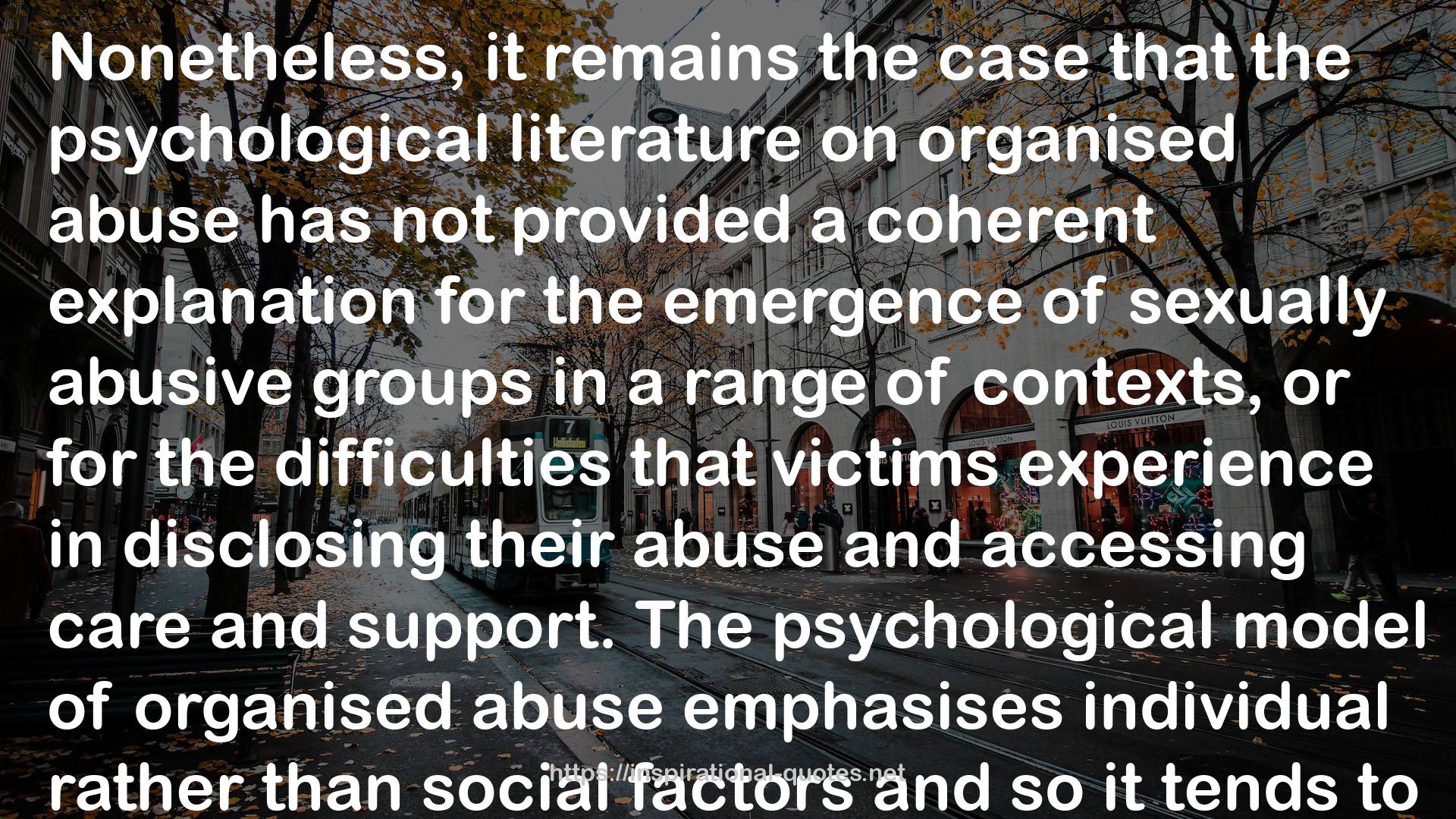" Nonetheless, it remains the case that the psychological literature on organised abuse has not provided a coherent explanation for the emergence of sexually abusive groups in a range of contexts, or for the difficulties that victims experience in disclosing their abuse and accessing care and support. The psychological model of organised abuse emphasises individual rather than social factors and so it tends to characterise organised abuse as a drama of psychological energies.
Similar deficiencies can be found in attempts to theorise organised abuse that draw from psychiatric understandings of ‘paedophilia’ (eg Wyre 1996). This is a perspective that has proved particularly influential in public inquiries into allegations of organised abuse (for examples from Australia, see NCA Joint Committee Report 1995, Wood Report 1997, for examples from Britain, see Corby et at. 2001). These public inquiries have integrated the psychiatric notion of ‘paedophilia’ with existing stereotypes of organised crime to generate a model of ‘organised paedophilia’ or the ‘paedophile ring’, in which otherwise solitary sexual offenders with deviant sexual interests conspire to sexually abuse children for pleasure and/or profit.
This psychiatric model may accurately describe some abusive men and groups but it has proven problematic as a catch-all explanation for organised abuse. Attempts to establish the existence of ‘paedophile rings’ often founders on semantic debates over whether alleged perpetrators meet the diagnostic criteria of a ‘paedophile’, sometimes leading to the confused and misleading conclusion that no ‘paedophile ring’ existed even where there is strong evidence that multiple perpetrators have colluded in the sexual abuse of multiple children. "
― , Organised Sexual Abuse
